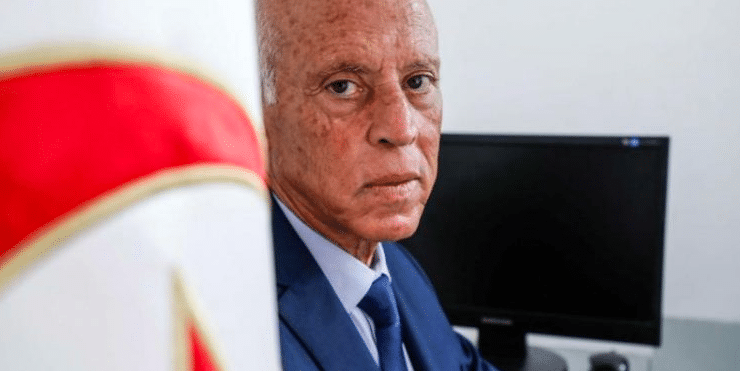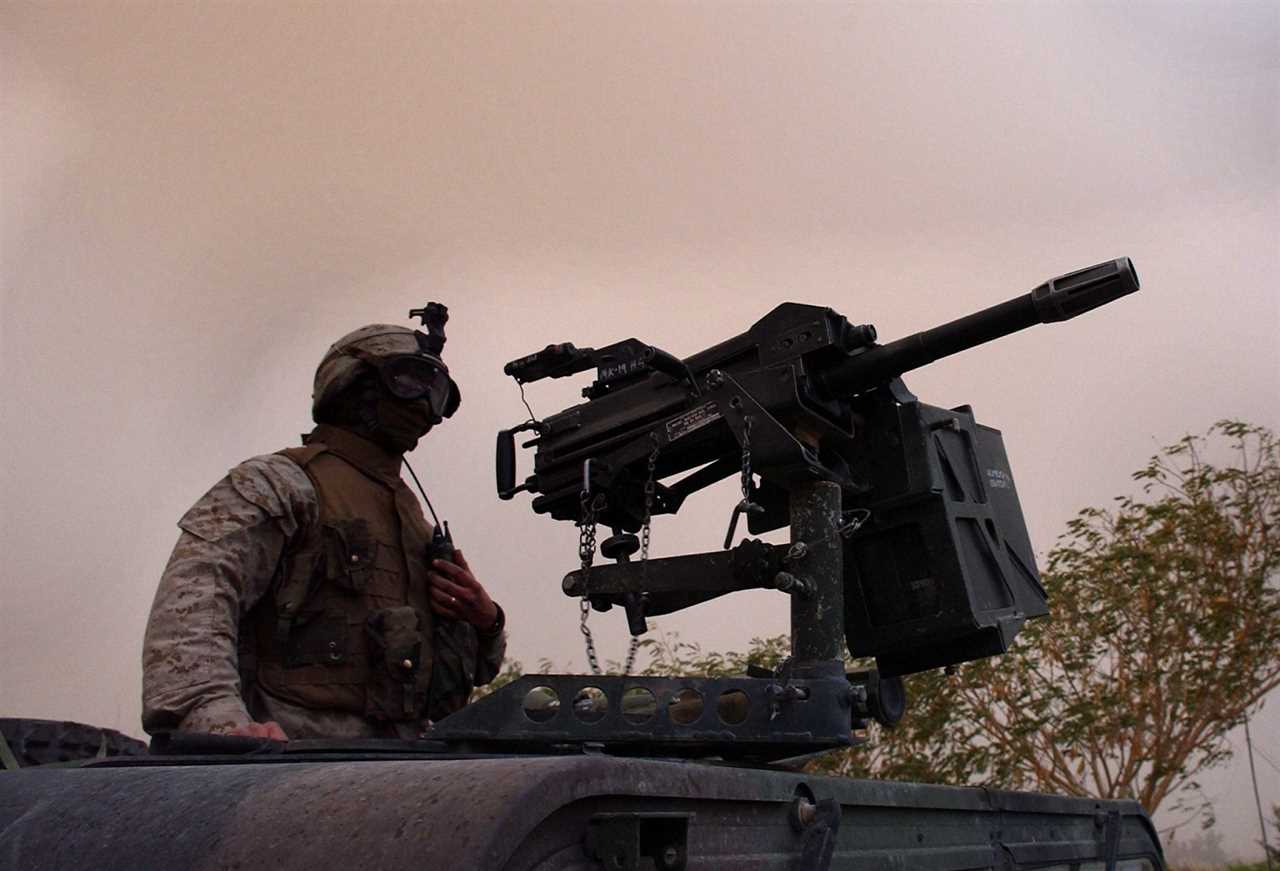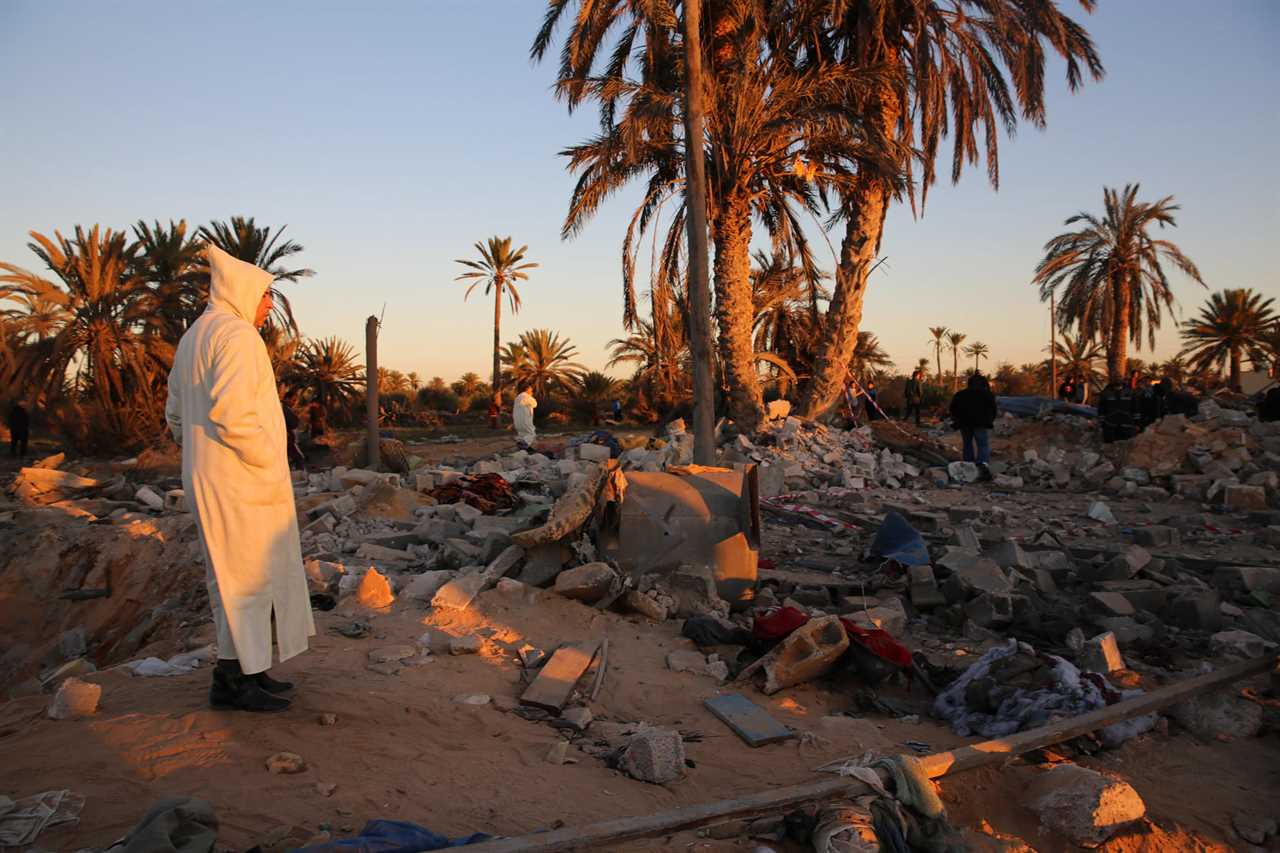Twenty years have now passed since 9/11. Since then, differing ideas of the importance of democracy in Middle Eastern policy have dominated the foreign policy approaches of four American presidents. After 9/11, then-President George W. Bush announced, “We have adopted a forward strategy of freedom in the Middle East”. After the Arab Spring a decade ago, Obama echoed that “It will be the policy of the United States to support transitions to democracy” in the region.
After two terms dominated by a foreign policy that placed the Middle East at its center, Donald Trump chose a policy of apathy and announced, “We are not here to lecture” in reference to Saudi Arabia. All three approaches have left a legacy of failure.

Tunisian President Kais Saied.
The events that have played out in Afghanistan over the last month have demonstrated the inadequacies of the Bush and Obama administrations to usher in democracy. The democratic government of Afghanistan in a matter of days despite two decades of war, over 200,000 dead, and more than $2 trillion spent. Western blood and treasure, to say nothing of the vast sacrifices of the Afghan people, only bought a twenty-year respite from repression, but did not end its danger.
Less noted, however, is the parallel example of Tunisia. It stretches the definitional usefulness of the term ‘the Middle East’ to a breaking point when referring to two countries separated by more than 5000km. Events there, however, took a similar albeit less bloody turn.
Tunisian President Kais Saied suspended parliament, imposed a curfew and dismissed Prime Minister Hichem Mechichi. This was followed by a purge of senior officials and a month of the former constitutional law professor ruling by decree. Over the last few days, as the world watched what was unfolding in Afghanistan, MPs and judges were placed under house arrest.
The poster child of the Arab Spring now begins to transform into its symbolic finale.
Both examples illustrate how the West’s foreign policy across the Middle East has comprehensively failed in its attempt to promote democracy, even as the dynamics and approaches on the ground have changed. Neither military interventionism, nor the caution of the Obama era, has worked.

A US Marine from the 2/4 Infantry Battalion sits on top of a Humvee during a sandstorm in Al Ramadi, Iraq. EPA-EFE//MAURIZIO GAMBARINI
Indeed, both the Bush and Obama administrations, at times, undermined democracy in pursuit of other goals. Bush worked with dictatorships to pursue perceived security threats, while Obama’s desire to maintain his domestic coalition made him a fickle friend of democracy in the region. In this way, US policy has been markedly inconsistent in its prioritization of democracy in the Middle East. Whilst in the past presidents would occasionally pressure or use military force to oust dictators and fundamentalists, they would also collaborate with them at other points. That dichotomy has clearly not worked in the context of the post-9/11 Middle East.
That said, attempts to conduct policy without any reference to democratic ideals has also failed. Trump’s pandering to the Saudi leadership gave the Kingdom implicit permission to intervene in Yemen. His utter disinterest and disdain for foreign policy issues led to growing Russian influence in Syria and Libya, which has led thousands of Russian military contractors and combat personnel operating and committing war crimes from the Levant to sub-Saharan Africa. His policy of maximum pressure on Iran has yielded nothing in return.
In short, sheer grubby “transactionalism” is not helpful. It does not even succeed on its own terms of providing rough stability. More importantly, if the US supports the idea that alliances are merely transactional, rather than based on principle, it weakens its long-term ability to maintain its network of allies who can help contain and counter Russian and Chinese influence in the world.
Some argue that the US should just leave the Middle East altogether. Biden can, within the context of domestic American political dynamics, be seen as an advocate of withdrawing the American presence in the region.
National security advisor, Jonathan Finer, co-wrote a memo titled “Ending the Forever Wars” in 2020, which has resulted in a conscious policy of de-prioritisation: Biden and his team would rather not waste precious resources in a region which they view as having only drawn policy-makers into long, arduous, and ultimately, unproductive efforts.
This approach is similarly unviable. The plain truth is that it is in the long-term interest of the US, the wider Middle East region as a whole, and the global community that there be a stable and democratic system of functioning states throughout the Near East. Without this, we can expect the migrant crises to continue and for Russia and China to increase their influence alongside the expected upticks in acts of terror. The US, EU and the UK must continue to act until this comes about. In plain terms, the solution to the problem is not to ignore it, but to change their approach until it is finally resolved.
US foreign policy, therefore, finds itself between three vital pressures – the importance of a democratic future for the Middle East and awareness that military force alone is not the answer, and that an optimistic view does not constitute a sound foreign policy. Going forward, American foreign policy must be active, but also realistic.
The current state of play in Libya illustrates the failures of the past, but also opportunities for the future. Libyans rose up in 2011 against its long-time dictator Muammar Gaddafi, but the revolution was only saved from a bloody defeat by a massive NATO intervention. The lack of sustained engagement by the US and EU then created a power vacuum for both internal and external powers to exploit. A decade of near-continuous conflict ensued only uncertainly, which was only ended by the ostensible creation of a Government of National Unity under Prime Minster Abdul Hamid Dbeibeh earlier this year. There is now a very real chance that the conflict could reignite as elections, which will surely be disputed, take place in December. Compounding the problem is that Biden’s foreign policy team – most notably Secretary of State Antony Blinken – have been absent.

Damage from an airstrike by US warplanes against a jihadist training camp in Sabratha, Libya. EPA-EFE//STRINGER
American foreign policy in Libya should re-orient itself in the direction of a persistent and committed engagement towards democratization; one that is explicitly focused on the long-term, and which can serve as an example for the region as a whole. Washington should launch a diplomatic offensive in the country that will demonstrate its commitment to democracy and stability. This means offering and building support for solutions to the most immediate problem – the looming December elections. Without a framework under which they can be legitimately run, the post-election period could, once again, wreak havoc on the country.
In this regard, the adoption of a modified 1951 constitution could be vital and should be considered. However, what is essential is that all actors understand that the US stands with democracy and will not support its opponents in Libya. This must be understood by Libyan domestic actors but also by international actors. American allies such as the UAE, Egypt and France, should understand that Washington will not tolerate continued meddling to support rogue elements.
This also should be pursued by an emphasis on supporting civil society in Libya, even as the political processes are supported. In the past, efforts have focused on the trappings of democratization, rather than its spirit. Committees, conventions, and congresses can be created, but they must be identified by the vast majority of citizens if they are to succeed. This lack of identification was a critical problem in both Tunisia and Afghanistan.
Libya now has the best chance in the region to become a true democracy. It also offers an opportunity to become an example of a new American foreign policy: one that is clear-eyed about the waters that it must navigate. The US cannot ‘do nothing’, but it cannot over-extend. At the same time, it must be aware of its goals and confident in its long-term ability to achieve them.
-------------------------------------------
By: Nicholas Waller
Title: The West must apply the lessons of Afghanistan and Tunisia to Libya
Sourced From: www.neweurope.eu/article/the-west-must-apply-the-lessons-of-afghanistan-and-tunisia-to-libya/
Published Date: Fri, 17 Sep 2021 09:27:49 +0000
Read More
 UK PoliticsWorld PoliticsVideosPrivacy PolicyTerms And Conditions
UK PoliticsWorld PoliticsVideosPrivacy PolicyTerms And Conditions
